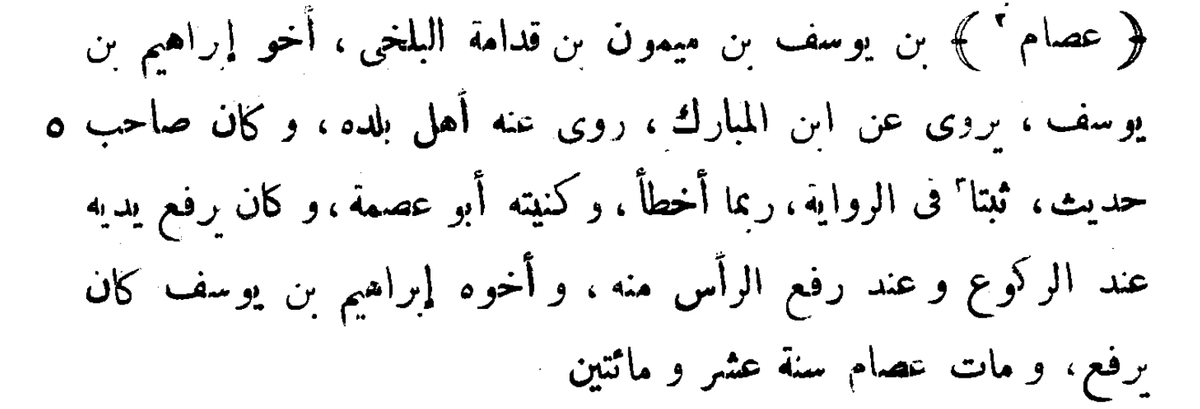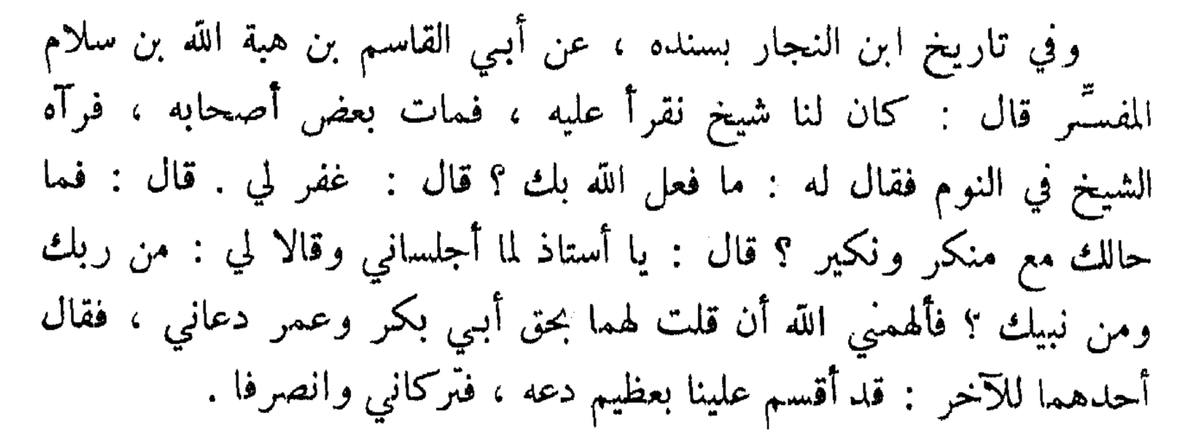
.:Authenticity of Fiqh al-Akbar:.
Abu’l Muntahā Shihābuddīn Aĥmad ibn Muĥammad al-Maghnīsāwī [d. 1000 AH / 1592 CE] writes in his commentary:
“Says the weak, sinful slave Abu’l Muntahā, may Allāh, the Most Great and the Most Generous, protect him from errors, sins,
Abu’l Muntahā Shihābuddīn Aĥmad ibn Muĥammad al-Maghnīsāwī [d. 1000 AH / 1592 CE] writes in his commentary:
“Says the weak, sinful slave Abu’l Muntahā, may Allāh, the Most Great and the Most Generous, protect him from errors, sins,

and corrupt, futile beliefs that the book Fiqh al-Akbar, which was authored by Imām al-Aáżam, is an authentic and accepted book.”
Mullā Álī ibn Sulţān al-Qārī al-Ĥanafī [d. 1014 AH / 1605 CE] writes in his commentary of Fiqh al-Akbar, Minaĥ al-Rawđ al-Az’har:
“Said Imām al-Aáżam, the Magnanimous, Most Eminent, in his book named Fiqh al-Akbar...”
“Said Imām al-Aáżam, the Magnanimous, Most Eminent, in his book named Fiqh al-Akbar...”

Sayyid Muĥammad Murtađā al-Ĥusaynī al-Zabīdī al-Ĥanafī [1145-1205 AH / 1732-1791 CE] writes:
“The writings of Imām Abū Ĥanīfah, and they are in five books: Fiqh al-Akbar, Risālah, Fiqh al-Absaţ, Kitāb Áālim wa’l Muta’állim, and the Wasiyyah attributed to the Imām.

“The writings of Imām Abū Ĥanīfah, and they are in five books: Fiqh al-Akbar, Risālah, Fiqh al-Absaţ, Kitāb Áālim wa’l Muta’állim, and the Wasiyyah attributed to the Imām.


There was much difference regarding that, from among them were those who rejected its attribution to the Imām completely, and [they said] that they were not from his writings, and from among them were those who attributed them to Muĥammad ibn Yūsuf al-Bukhārī,
who had the ephithet Abū Ĥanīfah, and this is the statement of the Mútazilah, due to what is in them of voiding their crooked proofs and their claims that the Imām was from them, as mentioned in Manāqib al-Kardariyyah, and this is a falsehood from them upon the Imām,
for indeed he, may Allāh be pleased with him, and his two companions were the first to speak regarding the principles of the religion and protected them by clear proofs at the start of the first century.”
He further writes:
“The correct view is that the discussions in these books are from the dictations of the Imām unto his students, such as Ĥammād, Abū Yūsuf, Abū Muţīý Ĥakam ibn Ábdullāh al-Balkhī, Abū Muqātil Ĥafş ibn Muslim al-Samarqandī.
“The correct view is that the discussions in these books are from the dictations of the Imām unto his students, such as Ĥammād, Abū Yūsuf, Abū Muţīý Ĥakam ibn Ábdullāh al-Balkhī, Abū Muqātil Ĥafş ibn Muslim al-Samarqandī.

From among them were those who compiled them and a group from the imāms transmitted them from them, such as Ismāýīl ibn Ĥammād, Muĥammad ibn Muqātil al-Rāzī, Muĥammad ibn Samā’áh, Nuşayr ibn Yaĥyā al-Balkhī, Shaddād ibn al-Ĥakam, and other than them,
until it reached Imām Abū Manşūr al-Māturīdī through rigorously authenticated chains.”
He further writes, after listing the scholars who quoted from these books:
“Indeed, extracts from the five books are transmitted in around 30 books from the books of the imāms,
He further writes, after listing the scholars who quoted from these books:
“Indeed, extracts from the five books are transmitted in around 30 books from the books of the imāms,

and this amount is sufficient to show that the ummah has accepted them, and Allāh knows best.”
[Itĥāf al-Sādah, 2/13-14]
[Itĥāf al-Sādah, 2/13-14]
Shaykh Muĥammad Zāhid ibn Ĥasan al-Kawtharī [1296-1371 AH / 1879-1952 CE] writes:
“As for Fiqh al-Akbar, narration of Ĥammād ibn Abū Ĥanīfah from his father, then it has many commentaries.
It has been published many times, in many cities, just as many of its commentaries have

“As for Fiqh al-Akbar, narration of Ĥammād ibn Abū Ĥanīfah from his father, then it has many commentaries.
It has been published many times, in many cities, just as many of its commentaries have


been published.
As for its chain of transmission, then in the preserved handwritten manuscript, under volume 226, in the Library of Shaykh al-Islām Állāmah Áārif Ĥikmat in Madīnah al-Munawwarah, may Allāh increase it in honour,
As for its chain of transmission, then in the preserved handwritten manuscript, under volume 226, in the Library of Shaykh al-Islām Állāmah Áārif Ĥikmat in Madīnah al-Munawwarah, may Allāh increase it in honour,
at the beginning there is the chain of Shaykh Ibrāhīm al-Kūrānī for the book reaching to Álī ibn Aĥmad al-Fārisī, from Nuşayr ibn Yaĥyā, from [Muĥammad] Ibn Muqātil, from Íşām ibn Yūsuf, from Ĥammād ibn Abū Ĥanīfah from his father, may Allāh be pleased with them all.”
[Introduction to Áālim wa’l Muta’állim, 6-7]
Analysis of the narrators
1. Imām Abū Ismāýīl Ĥammād ibn Imām Abū Ĥanīfah [d. 176 AH / 793 CE]
Ibn Khallikān al-Shāfiýī [608-681 AH / 1211-1282 CE] writes:
“Abū Ismāýīl Ĥammād ibn Imām Abū Ĥanīfah al-Númān ibn Thābit was upon the

Analysis of the narrators
1. Imām Abū Ismāýīl Ĥammād ibn Imām Abū Ĥanīfah [d. 176 AH / 793 CE]
Ibn Khallikān al-Shāfiýī [608-681 AH / 1211-1282 CE] writes:
“Abū Ismāýīl Ĥammād ibn Imām Abū Ĥanīfah al-Númān ibn Thābit was upon the


madh’hab of his father, may Allāh be pleased with him. He was from the upright and the good, upon a great foundation.”
Further:
“The passing away of the aforementioned Ĥammād was in Dhu’l Qá’dah, in the year 176, may Allāh táālā have mercy upon him.”
[Wafyāt al-Aá’yān, 2/205]

Further:
“The passing away of the aforementioned Ĥammād was in Dhu’l Qá’dah, in the year 176, may Allāh táālā have mercy upon him.”
[Wafyāt al-Aá’yān, 2/205]


Shamsuddīn al-Dhahabī al-Shāfiýī [673-748 AH / 1274-1348] writes:
“His son, the Faqīh Ĥammād ibn Abū Ĥanīfah: He was a man of knowledge, piety, uprightness, and complete fear of Allāh.”
Further:
“Ĥammād passed away at a mature age, in the year 176.

“His son, the Faqīh Ĥammād ibn Abū Ĥanīfah: He was a man of knowledge, piety, uprightness, and complete fear of Allāh.”
Further:
“Ĥammād passed away at a mature age, in the year 176.


He has narrated from his father and other than he. His son, Imām Ismāýīl ibn Ĥammād, the Qāđī of Başrah, narrated from him.”
[Siyar, 6/403]
[Siyar, 6/403]
2. Íşām ibn Yūsuf al-Balkhī [d. 210 AH / 825 CE or 215 AH / 830 CE]
Ibn Ĥibbān al-Shāfiýī [270-354 AH / 884-965 CE] writes:
“Íşām ibn Yūsuf ibn Maymūn ibn Qudāmah al-Balkhī, brother of Ibrāhīm ibn Yūsuf. He narrates from Ibn al-Mubārak. The people of his city narrated from him.
Ibn Ĥibbān al-Shāfiýī [270-354 AH / 884-965 CE] writes:
“Íşām ibn Yūsuf ibn Maymūn ibn Qudāmah al-Balkhī, brother of Ibrāhīm ibn Yūsuf. He narrates from Ibn al-Mubārak. The people of his city narrated from him.

He was a narrator of hadīth, established in narration, perhaps he made a mistake. His epithet was Abū Íşmah. He would raise his hands upon bowing and upon raising his head from it, and his brother Ibrāhīm ibn Yūsuf would raise [too].
Íşām passed away in the year 210.”
Íşām passed away in the year 210.”
[Thiqāt, 8/521]
He included him in his book of trustworthy narrators.
Dhahabī writes:
“Íşām ibn Yūsuf ibn Maymūn ibn Qudāmah
Abū Íşmah al-Bāhilī al-Balkhī, brother of Ibrāhīm ibn Yūsuf.
[Narrated] from: Shú’bah, Sufyān al-Thawrī, and other than them.

He included him in his book of trustworthy narrators.
Dhahabī writes:
“Íşām ibn Yūsuf ibn Maymūn ibn Qudāmah
Abū Íşmah al-Bāhilī al-Balkhī, brother of Ibrāhīm ibn Yūsuf.
[Narrated] from: Shú’bah, Sufyān al-Thawrī, and other than them.


[Narrated] from him: Má’mar ibn Muĥammad al-Áwfī, Ismāýīl ibn Muĥammad al-Fasawī, Muĥammad ibn Ábd ibn Áāmir al-Samarqandī al-Dayif, and his son Ábdullāh ibn Íşām, and others.
He and his brother were the Shaykhs of Balkh in their era.
He passed away in the year 215 in Balkh.”
He and his brother were the Shaykhs of Balkh in their era.
He passed away in the year 215 in Balkh.”
[Tārīkh al-Islām, 15/295-296]
3. Qāđī Muĥammad ibn Muqātil al-Rāzī [d. 248 AH / 862 CE]
Abu’l Wafā al-Qurashī [696-775 AH / 1296-1373 CE] writes:
“Muĥammad ibn Muqātil al-Rāzī, Qāđī of Rayy, from the companions of Muĥammad ibn al-Ĥasan [al-Shaybānī],
3. Qāđī Muĥammad ibn Muqātil al-Rāzī [d. 248 AH / 862 CE]
Abu’l Wafā al-Qurashī [696-775 AH / 1296-1373 CE] writes:
“Muĥammad ibn Muqātil al-Rāzī, Qāđī of Rayy, from the companions of Muĥammad ibn al-Ĥasan [al-Shaybānī],

from the generation of Sulaymān ibn Shuáyb and Álī ibn Má’bad.”
[Jawāhir al-Muđiyyah, 2/134]
Dhahābī writes:
“He narrated from Wakīý and his generation. He is spoken about but he is not abandoned.”
[Mīzān al-Ií’tidāl, 4/47]
[Jawāhir al-Muđiyyah, 2/134]
Dhahābī writes:
“He narrated from Wakīý and his generation. He is spoken about but he is not abandoned.”
[Mīzān al-Ií’tidāl, 4/47]

4. Nuşayr ibn Yaĥyā al-Balkhī [d. 268 AH / 881 CE]
Abu’l Wafā al-Qurashī writes:
“He studied fiqh with Abū Sulaymān al-Jūzjānī, [who took] from Muĥammad [ibn al-Ĥasan al-Shaybānī]...He passed away in the year 268, may Allāh have mercy upon him.”
[Jawāhir al-Muđiyyah, 2/200]
Abu’l Wafā al-Qurashī writes:
“He studied fiqh with Abū Sulaymān al-Jūzjānī, [who took] from Muĥammad [ibn al-Ĥasan al-Shaybānī]...He passed away in the year 268, may Allāh have mercy upon him.”
[Jawāhir al-Muđiyyah, 2/200]

It is mentioned in Fađā’il e Balkh, regarding him:
“Faqīh [jurist], Áālim [scholar] and Zāhid [ascetic], Muĥaqqiq, Nuşayr ibn Yaĥyā al-Balkhī.”
Thus we see that the narrators of Fiqh al-Akbar were great scholars and among the righteous.
“Faqīh [jurist], Áālim [scholar] and Zāhid [ascetic], Muĥaqqiq, Nuşayr ibn Yaĥyā al-Balkhī.”
Thus we see that the narrators of Fiqh al-Akbar were great scholars and among the righteous.

• • •
Missing some Tweet in this thread? You can try to
force a refresh












